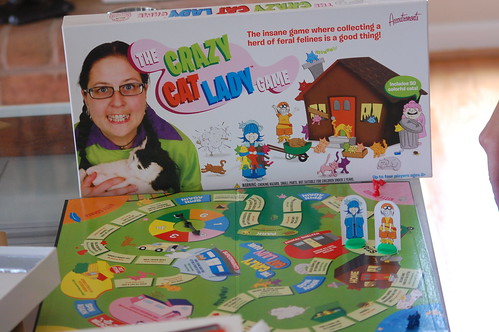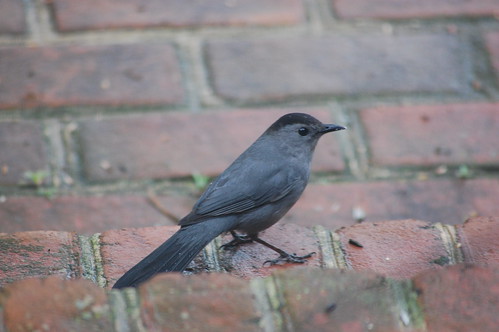I was corresponding with a caregiver about a case where someone had complained about (what else?) some cats.
One of the things she mentioned in her email, was about how it was highly unlikely that the cats were the perpetrators in this case, because so far, there had never been a case of it even in the West.
I mention this, not to embarrass her but because I notice this is something that does happen quite often in mediations.
Now I understand of course that people want to protect the cats, and so sometimes we tend to get defensive. When we see a case that seems to be nonsense, our first response is to say it is rubbish. Chances are, it may well be, but a few rules to note.
One, don't make a generalisation - or "Never say Never". Never say a cat will 'never' attack, or that a cat 'never scratches a car'. You never (pun intended) know. For example, a cat GENERALLY would not attack - but what if it is protecting kittens? There are usually exceptions to any rule. It takes nothing away from your statement to say it is 'highly unlikely'. If it is an anomaly then you can investigate and see why that has happened.
On the other hand, if the complainant can just pull out ONE case where it HAS happened, then at best, your integrity is shot. You are seen to be biased or that worse, you know nothing about cats. At worst, the complainant may think you just outright lied.
Two, a statement such as 'it doesn't happen in the West', or 'no one in Singapore has ever heard of it' is not a great first line of defence.
Let me give an analogy. A few years ago, everyone in my family came down with food poisoning after eating a meal we bought from a restaurant. We had not eaten any meals together for the preceding two days or so, except this one. We called the restaurant as we didn't want anyone else to get sick. What was their response? That it couldn't be true because they had 'never' had a case like this before. Does one statement follow the other? Of course not - just because it's never happened before doesn't mean it won't ever happen. I would have been much happier if the restaurant had said they'd look into it and got back to us. Needless to say we never ate there again.
Also bear in mind, a complainant does not care whether this has or has not happened to someone else, somewhere else. What the complainant cares about is whether this is going to happen to him or her. So you should try and deal directly with their concerns.
Instead, it is better to explain WHY the situation you're dealing with (cats attacking, cats scratching cars) is unlikely to happen. You can then add that you've not heard of any such cases yourself, or in your reading. This backs up what you say, but isn't the main crux of your argument.
If the complainant is shown to be exaggerating, then your own calm, logical statements will be an even starker contrast to what they are saying. That will show, at least to the TC, if not to the complainant, that you are the reasonable person in this case.
Thursday, May 28, 2009
Wednesday, May 27, 2009
Tuesday, May 26, 2009
Mockingbirds
This is a very interesting study about how mockingbirds seem to be able to identify people. Here's the accompanying video. It reminds me about the story in the newspapers a while ago about some crows in Singapore. Apparently they used to swoop down and attack one of the people involved in destroying some trees where they used to roost.
Monday, May 25, 2009
Nutro recall
Some of you may have already seen this. There's a recall of Nutro pet food - here's a list of the foods affected.
TNRM in Malaysia
Chinky has connected via email some people in Malaysia who want to start a TNRM programme. It's really great to see that TNRM is really expanding - and I know there are people who must have already been doing it there. However it's wonderful to see another group bringing TNRM to their community, and even raising funds within their community.
What's also great to see is the caregivers here who have been very helpful with their advice/time via email. When you first start out, I think there are many things you don't anticipate, and speaking with more experienced caregivers certainly helps. Also, it prevents you from reinventing the wheel - otherwise you make the same mistakes that others before you have already tried.
Let's hope that this group will also inspire more groups in Malaysia and beyond :)
What's also great to see is the caregivers here who have been very helpful with their advice/time via email. When you first start out, I think there are many things you don't anticipate, and speaking with more experienced caregivers certainly helps. Also, it prevents you from reinventing the wheel - otherwise you make the same mistakes that others before you have already tried.
Let's hope that this group will also inspire more groups in Malaysia and beyond :)
Wednesday, May 20, 2009
"Whack" a kitten
When I was sent this video, I was a little apprehensive, but the 'whacking' consists of a very soft nudge so it's safe to watch!
How many kittens do you see? The people I've asked all have different guesses.
How many kittens do you see? The people I've asked all have different guesses.
Tuesday, May 19, 2009
Today (19-5-09)
A nice letter from Today Online which makes the same good point - why are traps loaned out for free? If AVA is a free 'pest' controller, then it really should control all 'pests' - including cockroaches, flies, ants, etc.
Sunday, May 17, 2009
Endangered Species Day
May 15th was Endangered Species Day. In Singapore, on Saturday, there was the Animal Welfare Symposium which I heard went very well! There were a number of really interesting projects up for the Animal Protectors' Grant and it's very heartening to see so many people come up with great animal welfare ideas!
Friday, May 15, 2009
Hoarding
Too often, people think hoarders are well meaning. If only, the thinking goes, we 'help them out', they'll be able to manage. They'll stop taking in cats. They'll sterilise and manage the ones they can cope with.
The fact of the matter is, most hoarders relapse. According to Tuft's University, the rate of relapse is almost 100%. Most hoarders don't see an issue with what they are doing, thinking that they are 'rescuing' or 'saving' the cats. The sad fact of the matter is that all the good intentions in the world from the people wanting to help is not going to be enough to put an end to the animals' suffering. Most hoarders will just go out and get more cats. Of the few hoarders I met, none of them could stop - they were of the mindset that no one else cared for the cats as they did, nor could save them as they would. Never mind, the dead cats that would seem to suggest otherwise.
Here's a case that was just uncovered in the US in the last few days to show what one of these hoarders homes looks like. If you think the urine and feces drenched home is an exaggeration, Jolanda and I went into a house which had feces smeared all over the walls. It was horrifying.
The fact of the matter is, most hoarders relapse. According to Tuft's University, the rate of relapse is almost 100%. Most hoarders don't see an issue with what they are doing, thinking that they are 'rescuing' or 'saving' the cats. The sad fact of the matter is that all the good intentions in the world from the people wanting to help is not going to be enough to put an end to the animals' suffering. Most hoarders will just go out and get more cats. Of the few hoarders I met, none of them could stop - they were of the mindset that no one else cared for the cats as they did, nor could save them as they would. Never mind, the dead cats that would seem to suggest otherwise.
Here's a case that was just uncovered in the US in the last few days to show what one of these hoarders homes looks like. If you think the urine and feces drenched home is an exaggeration, Jolanda and I went into a house which had feces smeared all over the walls. It was horrifying.
Thursday, May 14, 2009
Monday, May 11, 2009
Thursday, May 7, 2009
Tuesday, May 5, 2009
AWARE and civil society
I was so glad to read about the AWARE EOGM over the weekend (and was getting SMS updates from friends). It wasn't about Christians versus homosexuals as some people were trying to make it out to be.
It was really about many people taking a stand against what they felt was unfair - and that was the takeover of AWARE.
On a bigger scale, I think this bodes very well for civil society in Singapore. People have said Singaporeans are apathetic - but over the weekend, many people stood up to be counted and to have a voice. I am immensely happy to see that.
There was a good article about this and the ramifications of the AWARE saga in Today.
It was really about many people taking a stand against what they felt was unfair - and that was the takeover of AWARE.
On a bigger scale, I think this bodes very well for civil society in Singapore. People have said Singaporeans are apathetic - but over the weekend, many people stood up to be counted and to have a voice. I am immensely happy to see that.
There was a good article about this and the ramifications of the AWARE saga in Today.
Subscribe to:
Comments (Atom)

